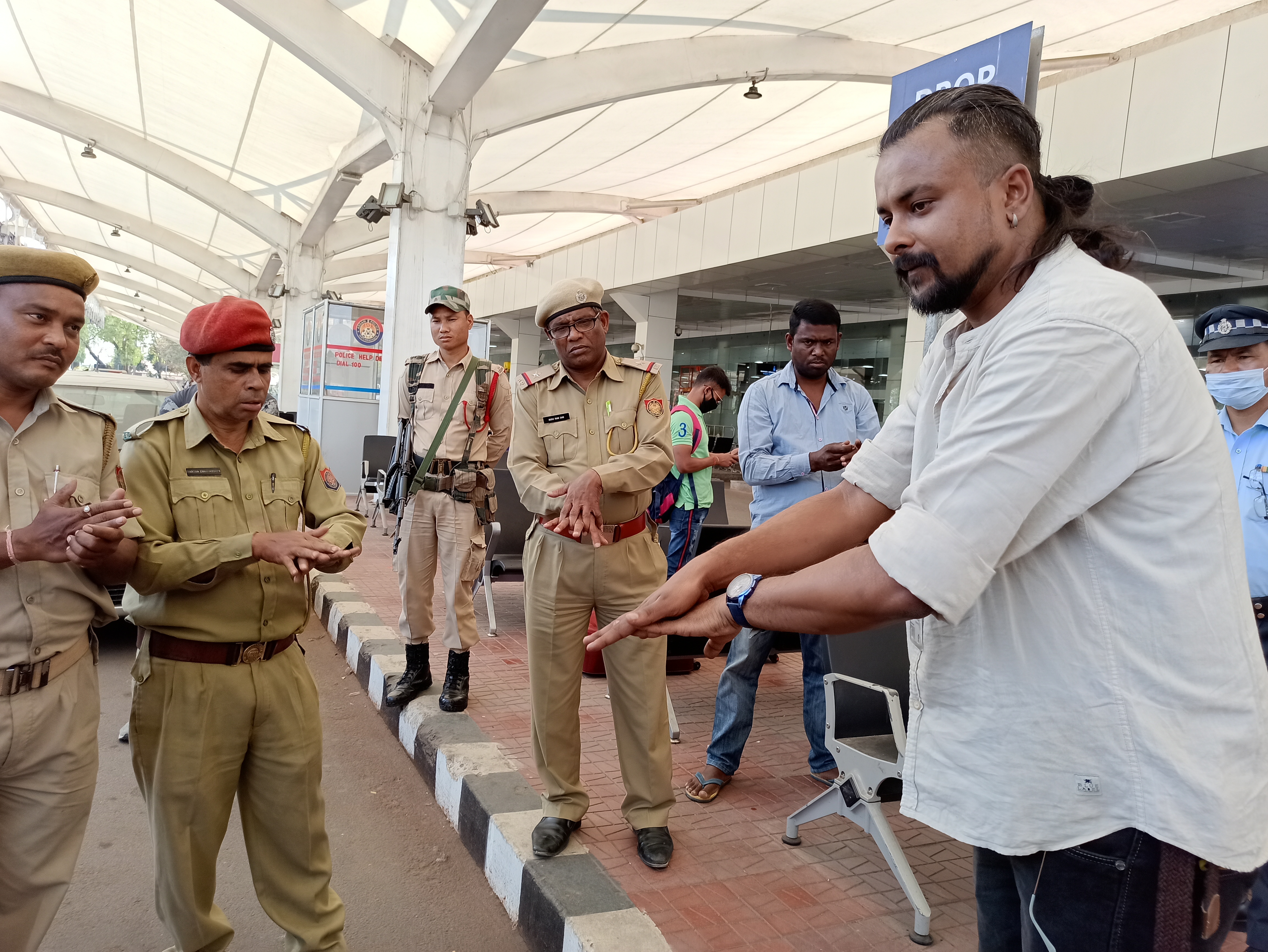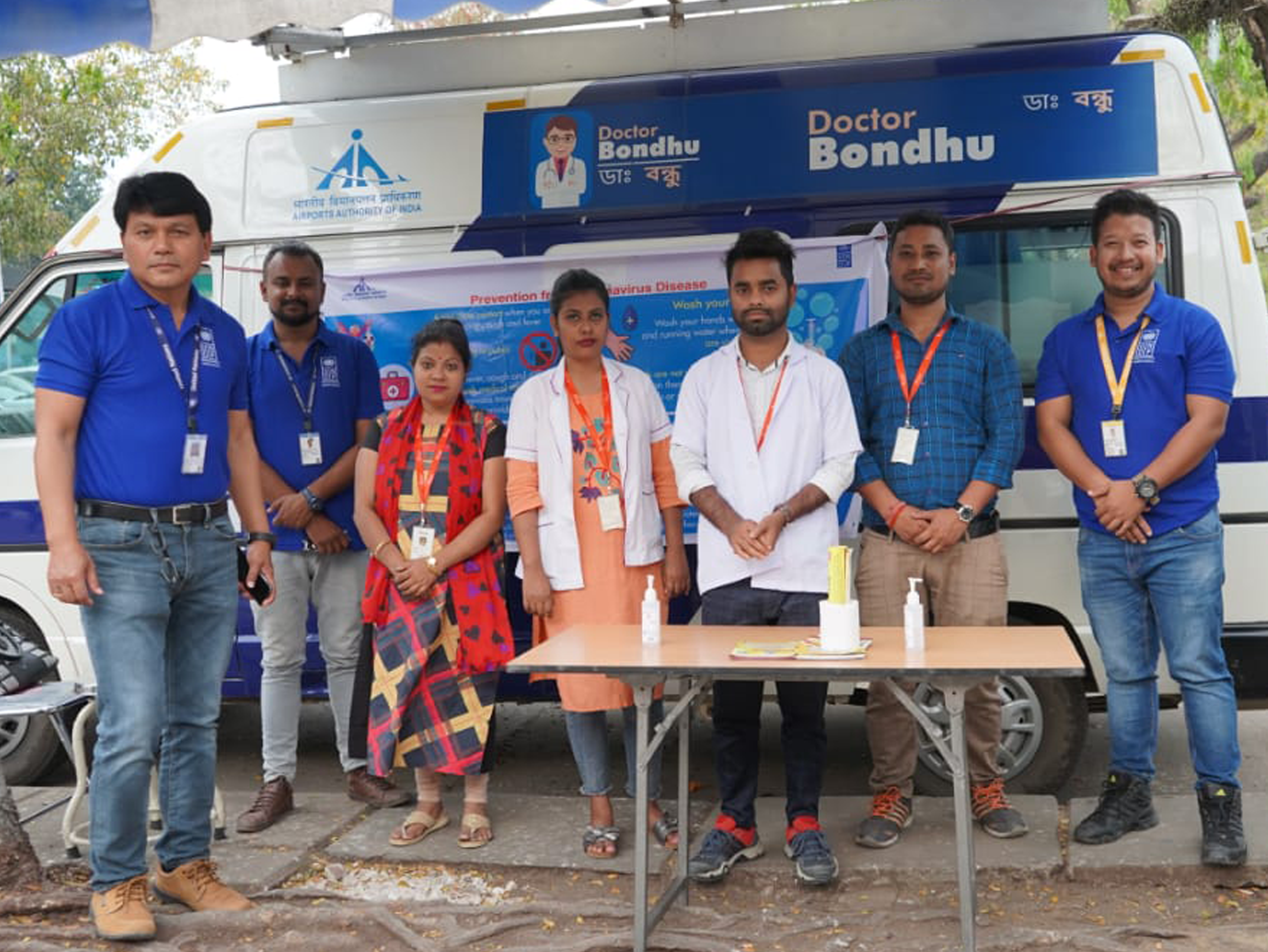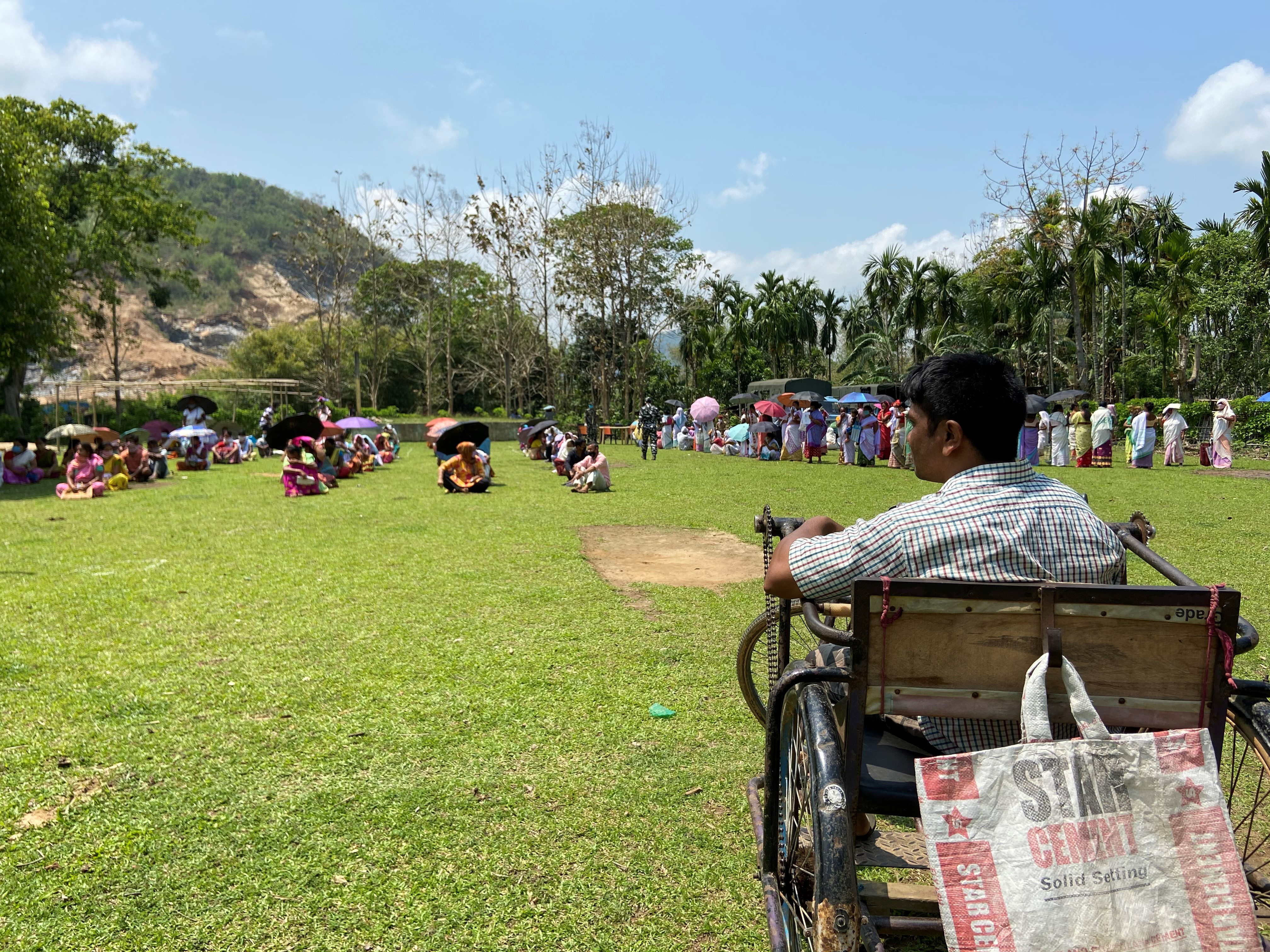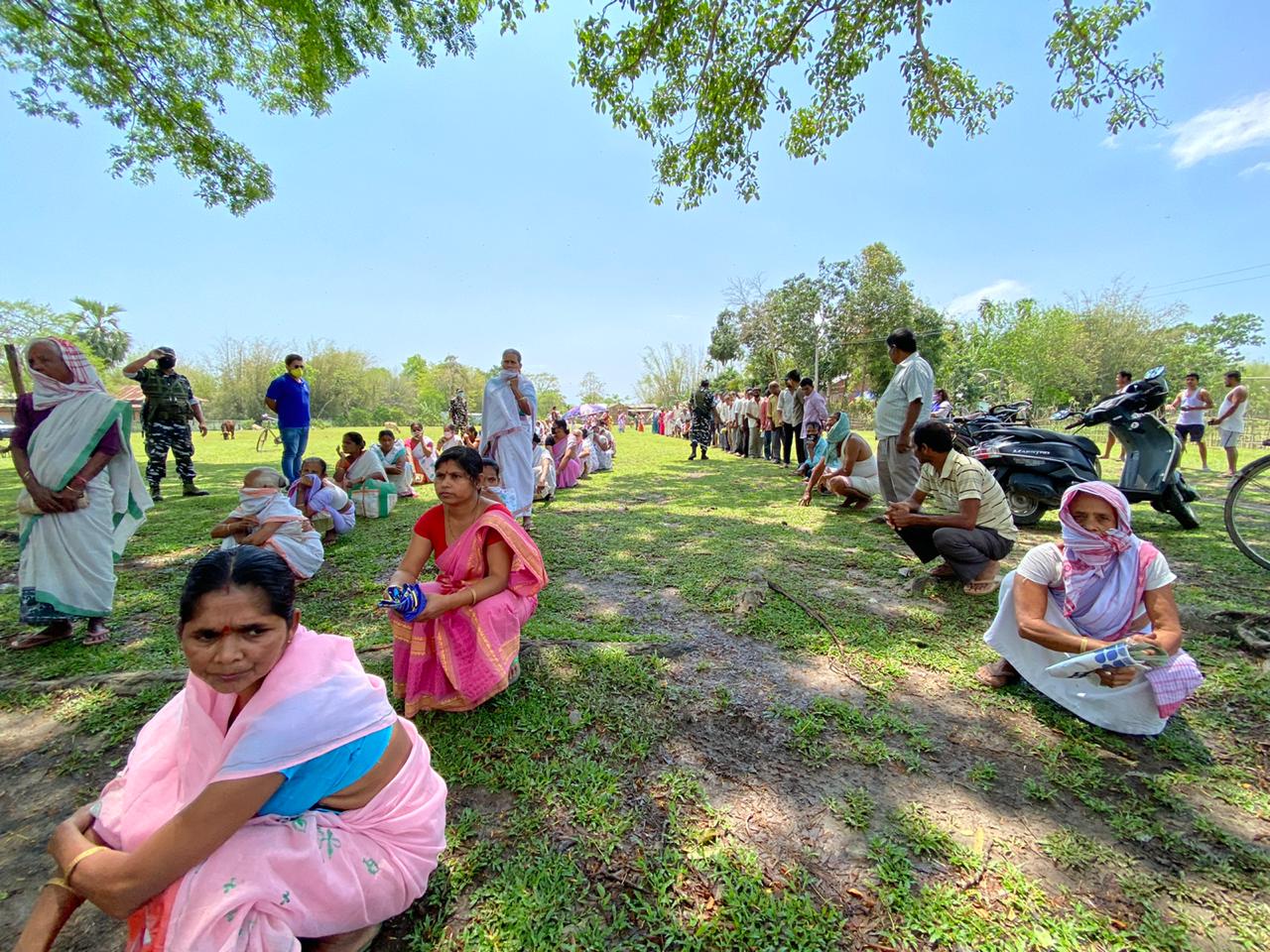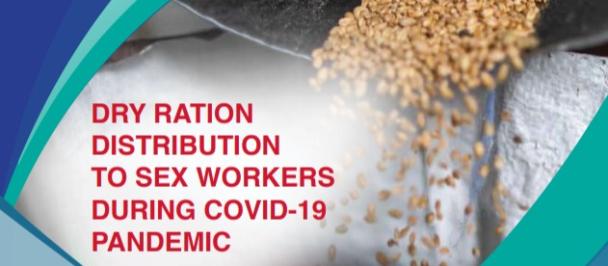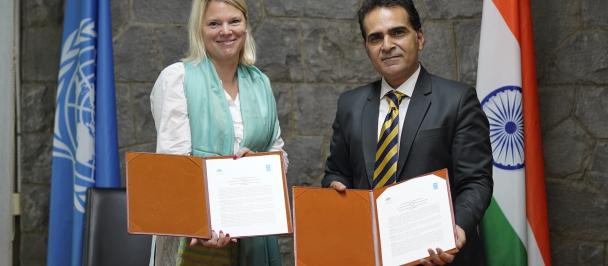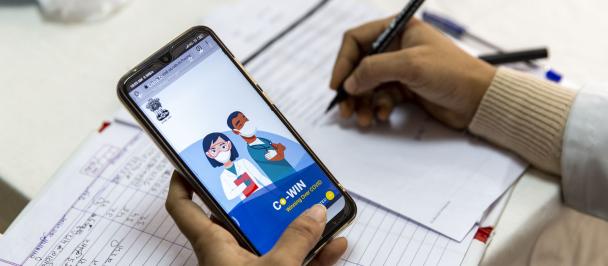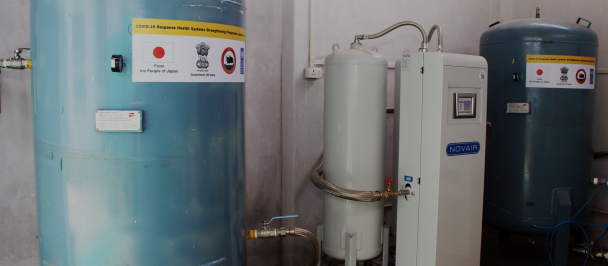by Shubham Tandon and Rita Thokchom
Resilience Building of Communities around Guwahati Airport
May 14, 2020
The global COVID-19 outbreak and the nation-wide lockdown has hit hard, affecting hundreds and thousands of people in an unfolding human tragedy. It has resulted in tremendous economic and social pressure in addition to fear and panic among citizens. The Ministry of Home Affairs, India is treating COVID-19 as a “notified disaster” and providing assistance under the State Disaster Response Fund (SDRF).
The effort is to stop the spread of the virus and collectively focus on emergency response, psychosocial support, and community awareness against the disruption caused.
UNDP India is consistently working with its partners to regulate the spread and provide aid and support to many segments of the society. COVID-19 is much more than a health induced disaster, and Support During Pandemic (#SDP) is one initiative under Airport Authority of India and UNDP India’s project Resilience Building of Communities around Airport. The project which aims to build resilience to crisis and strengthen vulnerable communities.
The initiative started off with an awareness and sensitization drive on prevention against the contagion, at Lokpriya Gopinath Bordoloi International (LGBI) Airport, Guwahati from 19 March 2020 to 23 March 2020. A team of paramedics from the Mobile Medical Unit (MMU) under the project, along with UNDP staff members organized one-to-one discussions with arriving passengers, security personals, housekeeping and maintenance staff, Airport parking-lot staff, Assam Police personals, taxi drivers and other employees of LGBI Airport. The discussions primarily focussed on personal and public hygiene behaviours, basic cough etiquettes, 7-Steps of effective handwashing, sensitization on symptoms of coronavirus and the urgency of immediate medical attention through government helplines, in case of prevailing symptoms . Over the 5-day long program, SDP was able to reach-out to 931 individuals..
In any emerging crisis, it is important that the right amount of information on preventive measures are put out to avoid panic and confusions. To help in providing the government-approved guidelines and actionable measures, a team of Computer Trainers (6) under the project rendered services to the Axom Sarkar Swasthya & Poriyal Kolyan Bibhag, essentially to make telephonic follow-ups with home quarantined individuals and suggesting them to maintain the 14 days protocol, sharing guidelines and precautionary measures related to COVID-19, and informing them about government helpline numbers (104, others). The team collectively reached out to 312 individuals.
UNDP India has provided free health services for 35 villages in Assam through its Mobile Medical Unit – Dr. Bondhu with support from the Airport Authority of India. The Mobile Medical Unit is currently engaged in Moinakhurung Model Hospital, under Azara BPHC for home visits of Quarantine cases since 31 March 2020. This is an additional support service extended by UNDP to the District Health Society, Kamrup. Three quarantined cases were closely monitored and followed-up by Dr. Bondhu. The paramedics’ team of Dr. Bondhu is currently engaged in rigorous follow-up with quarantine cases through the 104 government helpline number.
While taking decisive actions to curb positive case incidence, it is also important to address the immediate concerns of vulnerable communities, including emergency food relief and community-oriented psychosocial support. UNDP India through its Support During Pandemic initiative reached out to 1000 households, with essential items (grocery kits, soap bars and surgical masks), from 16 April 2020 across Rani Development Block.
Our team provided basic psychosocial care and support, including through art and music, to families of daily wage earners, migrant labourers, children groups and other affected families and individuals. Cultural songs like bihu, jhumoor, and motivational songs were performed by a few soldiers and community members, thereby showing resistance to the pandemic through music. Another integral element within the drive was the demonstration of best practices of physical distancing and personal and public hygiene behaviours.
The ongoing pandemic has taught us the need to recognise community solidarity and lend a helping hand to those who need it the most. It is a call for every individual to have a deeper understanding of the ties that bind us on a global scale and the need for collective action to address humanity, and achieve the sustainable development goals for a better planet.
The writers are part of the Climate Change and Resilience team at UNDP India

 Locations
Locations